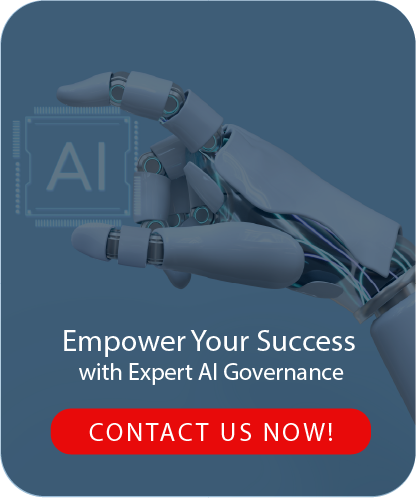AI is transforming small businesses, offering opportunities to streamline operations, improve decision-making, and enhance customer experiences. With the right consulting, small businesses can unlock big results through cost-effective, scalable solutions. This guide explores how AI consulting drives growth and overcomes common adoption challenges.

Cost-Effectiveness of AI Consulting
AI consulting for small businesses presents a transformative opportunity for organizations seeking to optimize their operations and innovate their services. By leveraging advanced technologies and data analytics, AI consultants help identify inefficiencies, streamline processes, and enhance decision-making capabilities. These enhancements can result in improved productivity and better alignment of business objectives with market demands, allowing small businesses to remain competitive in an ever-evolving landscape.
The investment in AI consulting is not just about immediate outcomes; it also fosters long-term benefits. Building a strategy with an AI consultant enables small businesses to create scalable solutions that can grow with them. The focus shifts from merely solving current challenges to preparing for future opportunities, ensuring sustained relevance in their respective industries. Emphasizing a collaborative approach, AI consultants play a pivotal role in guiding small businesses through the complexities of technology integration while ensuring alignment with their core missions.
Evaluating Return on Investment for Small Businesses
Small businesses need to take a systematic approach when assessing the return on investment (ROI) of AI consulting services. By clearly defining key performance indicators (KPIs), owners can measure the impact of AI solutions on their operational efficiency and overall productivity. Metrics such as increased sales, enhanced customer satisfaction, and streamlined processes contribute to a comprehensive evaluation of ROI. Understanding the specific benefits derived from AI implementation is essential for justifying investment decisions and demonstrating long-term value.
In addition, gathering qualitative feedback from employees and customers can provide valuable insights into the success of AI initiatives. Engaging team members in the evaluation process reveals how AI tools have changed workflow dynamics and customer interactions. This qualitative data, combined with quantitative metrics, allows small businesses to assess the effectiveness of AI consulting on a holistic level. By fostering a culture of continuous improvement, businesses can confidently leverage AI to drive growth and innovation.
| KPI | Measurement Method | Target Improvement (%) | Current Status | Notes |
|---|---|---|---|---|
| Increased Sales | Monthly revenue reports | 15% | 10% | Implement targeted AI marketing strategies |
| Customer Satisfaction | Customer feedback surveys | 20% | 75% | Utilize AI for personalized customer interactions |
| Process Efficiency | Time tracking before and after AI implementation | 30% | 25% | Review workflow changes post-AI adoption |
| Employee Engagement | Employee satisfaction surveys | 10% | 80% | Train staff to use AI tools effectively |

Overcoming Common Hesitations in AI Adoption
Many businesses grapple with doubts surrounding AI technology, often stemming from a lack of understanding or familiarity with its capabilities. These hesitations can encompass fears of complexity, the potential for disruption, and uncertainty about the return on investment from AI initiatives. Addressing these issues requires proactive communication and education. By demonstrating how AI can streamline operations and enhance decision-making, businesses can pave the way for smoother adoption.
Misinformation about AI frequently magnifies apprehensions. For instance, some leaders might perceive AI as a technology reserved for large enterprises. In reality, AI tools are increasingly accessible, designed to cater to the needs of small and medium-sized businesses. Emphasizing the adaptability and scalability of AI solutions can alleviate concerns. Sharing success stories from similar organizations can also bolster confidence, allowing stakeholders to envision a viable and beneficial integration of AI within their operations.
Addressing Concerns and Misconceptions
Misunderstandings surrounding artificial intelligence often stem from a lack of awareness of its capabilities and potential benefits. Many small business owners express fears about the complexity of AI systems and their suitability for various industries. These concerns can be alleviated through education about the customizable nature of AI solutions. When organizations understand that AI can be tailored to meet specific business challenges, they often find that the technology is more accessible than previously thought.
Another common misconception is the belief that AI will replace human workers, leading to job losses. In reality, AI often complements human efforts, allowing employees to focus on higher-value tasks. By automating repetitive processes, AI frees up time for staff to engage in more strategic activities, enhancing overall productivity. Organizations can foster a culture of collaboration between AI tools and human skills, paving the way for innovative approaches to problem-solving and growth.
Collaborating with AI Consultants
Engaging with AI consultants can significantly enhance a business's ability to leverage artificial intelligence effectively. These professionals offer expertise that aids organizations in navigating the complexities of AI technologies. Their deep understanding of industry trends enables tailored solutions that address specific business challenges. Collaboration fosters a clear communication pathway, ensuring that the AI strategies developed are aligned with the company’s objectives and culture.
Establishing a productive partnership with AI consultants can lead to innovative solutions that drive operational efficiency and growth. The consultants’ role extends beyond mere implementation; they act as strategic allies, offering insights and support throughout the entire process. This teamwork promotes a deeper understanding of AI capabilities within the organization, empowering employees to fully embrace the transformation and maximize the benefits of new technologies.

Building a Partnership for Long-Term Success
Establishing a strong partnership with AI consultants is fundamental for fostering sustained growth and innovation. Collaborating closely with these experts allows businesses to leverage advanced technologies tailored to their specific needs. The dynamic nature of AI requires ongoing engagement, necessitating open lines of communication to address evolving challenges and opportunities. By integrating the consultant’s insights with the organization’s objectives, businesses can create a framework that adapts to industry shifts, ensuring long-term relevance and competitiveness.
Building this partnership entails a commitment to a shared vision and mutual goals. Both parties must prioritize transparency and trust, fostering an environment conducive to experimentation and learning. Regular check-ins and feedback sessions can help refine strategies, ensuring alignment with the overall business direction. By viewing the consultant as an integral part of the team rather than just an external service provider, organizations pave the way for innovative solutions that drive success over time.
Measuring Success After AI Implementation
Implementing AI solutions requires a systematic approach to evaluate the outcomes effectively. Establishing key performance indicators (KPIs) relevant to the specific business objectives allows organizations to quantify improvements stemming from AI technology. Metrics may include productivity enhancements, customer engagement levels, or operational efficiency, yielding valuable insights into performance trends. Regularly analyzing these metrics provides a clear picture of progress and identifies areas for further optimization.
Feedback mechanisms such as surveys and user experiences contribute significantly to measuring success post-implementation. Understanding how employees and customers perceive AI solutions sheds light on their overall acceptance and effectiveness. Collaborating with AI consultants can also enhance this evaluation process, as their expertise enables organizations to refine their strategies based on real-time data. Continuous monitoring and adjustment in response to measurable outcomes ensure that AI initiatives align with long-term business goals.






